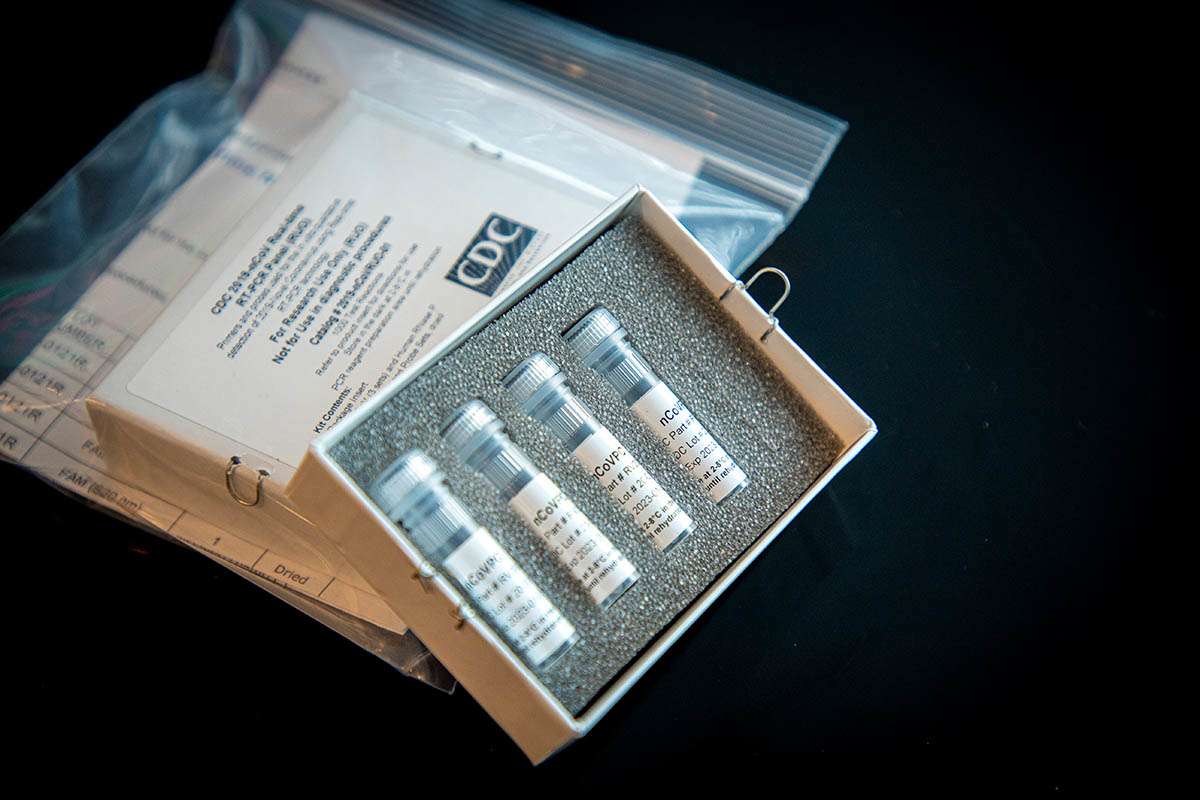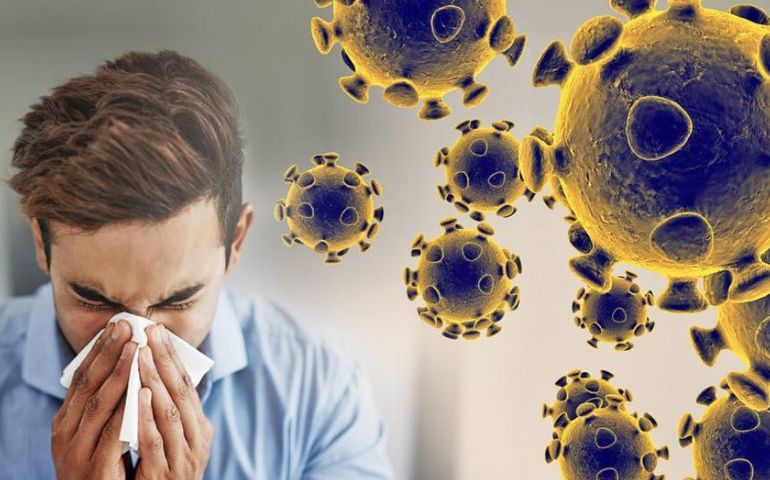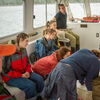
Coronavirus is beginning to affect Mainers, and Maine businesses
 Courtesy / U.S. Food & Drug Administration
The novel coronavirus, which causes the disease known as COVID-19, has struck over 100 people in the U.S., including one in New Hampshire.
Courtesy / U.S. Food & Drug Administration
The novel coronavirus, which causes the disease known as COVID-19, has struck over 100 people in the U.S., including one in New Hampshire.
As reports Monday of exposure to a novel coronavirus seemed to spread as fast as the microbe, Gov. Janet Mills announced she has convened a special team charged with coordinating responses by the state and local agencies to the disease known as COVID-19.
Meanwhile, businesses and others are already feeling some effects of the outbreak.
No cases of the illness have been confirmed in Maine, although one individual here was tested in February and did not show exposure to the virus. But the 10-person response team, led by Nirav Shah, director of the Maine Center for Disease Control and Prevention, isn’t taking chances.
In a statement late Monday, Mills said, “The Coronavirus Response Team, led by Dr. Shah, will build on our preparation and response efforts, coordinate across state government and ensure that we are taking every precaution necessary in partnership with local health officials, hospitals, school districts, municipalities and others to make sure Maine is fully prepared and to fully inform and protect all Maine people.”
The Maine CDC has also deployed dozens of staff to coronavirus preparations, and has taken steps such as updating lab tools and increasing supplies of protective equipment for health workers, according to the release.

On Tuesday morning, the number of coronavirus cases was estimated at 92,000 globally, including 3,100 deaths. In the United States, the case count rose to over 100, including one in New Hampshire, two in Massachusetts and two in Rhode island. Six deaths in the U.S. have been attributed to the outbreak.
Statewide impact
Across Maine, there’s a lot of hoping for the best, and preparing for the worst.
At MaineHealth, which operates 11 hospitals and has over 19,000 employees, spokesman John Porter on Monday said the state's largest health care system is ready to respond.
“Precautions are similar to what we are doing during flu season," he said. "Beyond that, all our local health systems have existing pandemic plans that can be activated in the event of an outbreak, and we have formed a task force at the system level to coordinate that response should it be needed.”
MaineHealth doesn't anticipate any shortage of protective gear for its workers, Porter added.
The University of Maine System on Monday said it has prohibited official travel to China, South Korea, Italy and Iran, following federal recommendations. In addition, 14 University of Maine students currently studying in Italy through school-affiliated programs will be evacuated, and UMaine is communicating with them and their families.
Currently, over 100 students and faculty members are traveling outside the country.
“At our universities we are focused first on supporting our students and faculty who have been traveling abroad and making sure we keep everyone informed,” Chancellor Dannel Malloy said in a news release.
Colby College in Waterville last month quarantined some individuals because of concern they might have been infected while recently traveling, but the fear proved unfounded. Officials at Husson University and at the University of New England both told Mainebiz they’re taking steps to keep students informed about potential risks. Schools may resort to online classes if face-to-face ones become hazardous.
“We have been delivering online courses for years and would work to ensure our students’ education continues with as little interruption as possible,” Eric B. Gordon, a spokesman for Husson, told Mainebiz.
Business reaction
It's too early to say exactly how COVID-19 may affect Maine's business community. But three weeks ago, when the outbreak was smaller and no U.S. deaths had yet occurred, 19 of 45 respondents to a Mainebiz survey already had indicated they were worried about potential business disruptions.
At Tilson, a Portland-based technology company with 630 employees, CEO Josh Broder said they are ramping up precautions.
“With Tilson offices in more than 20 locations across the country, we are actively monitoring available data and tailoring our response to local conditions,” he said in an email to Mainebiz. “We will be curtailing some business travel, conference attendance, external meeting visitors and encouraging use of telepresence technologies, including those for medical visits.”
Broder added that he’s encouraged employees to see their primary care doctors regularly and keep vaccinations up to date, since COVID-19 can be harder on people who are already sick.
So far, Maine’s travel and tourism industries don’t appear to be experiencing ill effects from the illness. Lynn Tillotson, president and CEO of Visit Portland, commented: “At this point we have not seen any cancellations for the upcoming season. It’s too soon to tell how it will completely affect the U.S. — most of Maine’s visitation is from the eastern half of the United States with a small fraction coming from international markets.”
In Bar Harbor, Jackson Laboratory is reviewing the latest information and scrutinizing staff travel.
JAX Executive Vice President and COO Catherine Longley said Tuesday, “As we closely monitor this situation, we are developing strategies and plans to ensure scientific and business continuity, including dedicated personnel to review JAX travel, and a health office that advises employees at all of our U.S. facilities who may feel unwell.”
The independent medical research institute is also stepping up its production of mice that could be used in developing a coronavirus-fighting drug.
One of the early steps in drug development is to test the potential medication in mice. The lab already has a colony of specialized mice that carry a human gene for this research, and plans to begin distributing them to scientists, at cost, in the next few months, according to a statement. JAX also said it is expanding production of the mice “as rapidly as possible.”













0 Comments